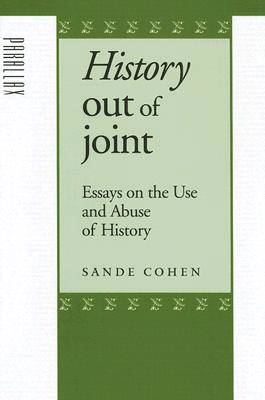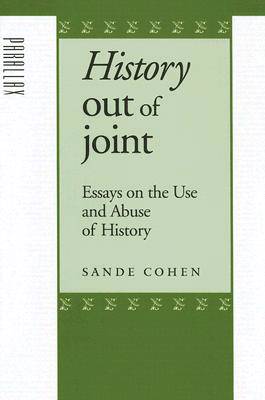
- Retrait gratuit dans votre magasin Club
- 7.000.000 titres dans notre catalogue
- Payer en toute sécurité
- Toujours un magasin près de chez vous
- Retrait gratuit dans votre magasin Club
- 7.000.000 titres dans notre catalogue
- Payer en toute sécurité
- Toujours un magasin près de chez vous
Description
In History Out of Joint, Sande Cohen considers the ways in which historical narratives summon up a past and lay down a future in the ever-multiplying intellectual debates of contemporary public culture. As competing factions advance contradictory principles to validate or discredit their preferred accounts of the past and the present, Cohen argues that the fundamental question of how these principles themselves should be addressed--of what truly constitutes the use or abuse of history--has been pushed aside. Taking Nietzsche's idea of a simultaneous production and "anti-production" of culture as his starting point, Cohen proposes that the real abuse lies in the attempt to establish one version of history by effacing every other and shows how this now prevalent idea of historiography reduced to a political resource has itself become a "normal" starting point of such abuse.
Cohen looks first at some current struggles to control public history, examining popular newspaper accounts of events in geopolitics and art, different views of the modern historian's role as a public authority, and the function of anecdote and its relationship to historical writing. He then turns to the works of several major figures in contemporary critical theory, including Derrida, Lyotard, and Deleuze and Guattari. Against the belief that their ideas led primarily to escapism, blindness, or endless deferral, Cohen demonstrates how their concepts of an affirmative yet critical event can be applied specifically to counter contemporary abuse of history and, in doing so, to resist social passivity, the nihilism and eschatological catastrophe of which they describe.
Spécifications
Parties prenantes
- Auteur(s) :
- Editeur:
Contenu
- Nombre de pages :
- 320
- Langue:
- Anglais
- Collection :
Caractéristiques
- EAN:
- 9780801882142
- Date de parution :
- 02-11-05
- Format:
- Livre relié
- Format numérique:
- Genaaid
- Dimensions :
- 161 mm x 236 mm
- Poids :
- 589 g







